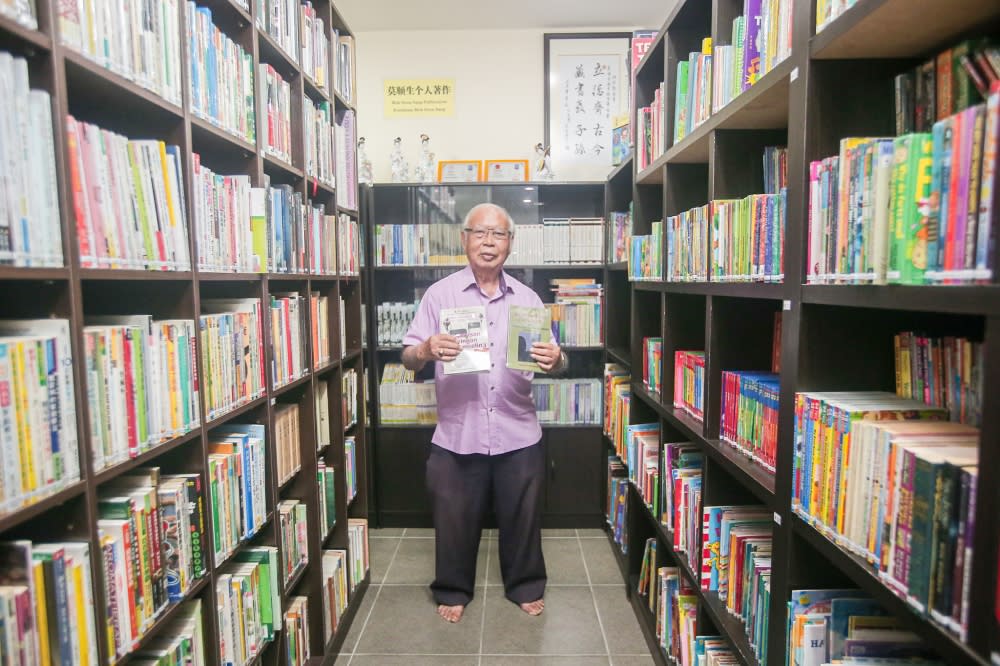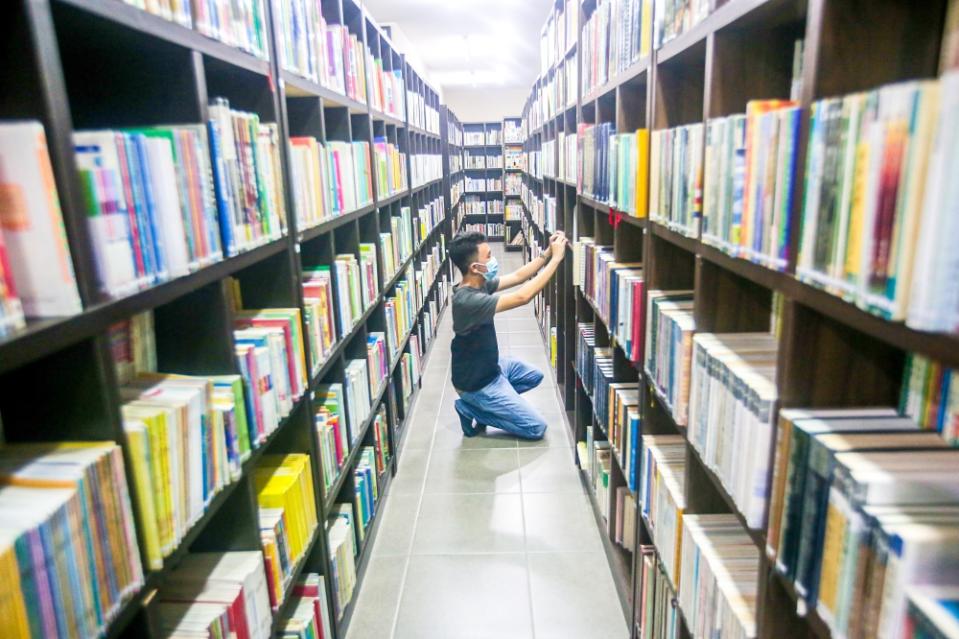Private library at Ipoh children's home boasts collection of 30,000 books

IPOH, Oct 18 — Retired school principal Mok Soon Sang initially wanted to donate his large collection of books to the Anning Children’s Home in Ampang only upon his death.
After a discussion with Bao En Shi Temple abbot Master Shi Kong Chan, who is also founder of Anning Children’s Home and Old Folks Home, the 82-year-old changed his mind.
“Master Shi said do not wait until my death to donate but to do it then,” he said of his discussion with the abbot that took place 13 years ago.
And that is how the Anning Children’s Home library started.
When the library first opened its doors in 2015, a year after construction began, its collection of books stood at some 5,000 books.
“Three thousand of the books were donated by me while the rest were from the home’s own collection,” he told Malay Mail.
Today, the library boasts some 30,000 books, making it one of the best equipped private libraries in Ipoh.
Its clients are a diverse group comprising of kindergarten children, university undergraduates to members of the public.
“Besides comics, novels and encyclopedias, we also have reference books, some limited editions that are imported from overseas and donated to us by well wishers.”
How it first started
Mok said prior to getting acquainted with Bao En Shi, it was the norm for him to give alms to senior citizens of homes in Ampang.
“One day while visiting a home, I asked the person-in-charge besides themselves, are there other homes in the area and they referred me to Bao En Shi.”
While visiting the temple, Mok detoured to the children’s home, which was also located in the same compound as the temple.
“In the home, I saw their collection of books were less than satisfactory and that is when I decided to donate all my books to them when I passed on.
“However when discussing the idea with Master Shi, he told me do not wait for me to die before doing good.”
To construct the three-storey building in which the library occupies the ground floor, Mok contributed RM200,000 of his personal money.
“The money is my savings from the payment of royalties of books authored by me,” he said, adding that he had written over 200 books, mostly academic.
When the building was completed, Mok proposed that it be named Anning Library but the idea was quickly rejected by Master Shi.
“He said I have done a lot to see the library’s fruition and it is only fair that it be named after me,” Mok explained.
Looking back, Mok said the decision to name the library after him helped in raising funds and donation of books.
“Many of our donors are my former students or people who had bought my books.”

Starting with 5,000 books, the Mok Soon Sang library now boasts 30,000 books, one of the biggest private libraries in Ipoh. — Picture by Farhan Najib
How to borrow books
Mok said one just needs to be a member of the library, and membership is free.
“We have two types of books — one that is allowed to be taken out while another is only to be read in the library.”
Members can borrow each book for up to a maximum of two weeks.
“If they want to extend the time, they need to bring it back to the library to be scanned for an extension.”
As some of the books are limited editions, borrowers are only allowed to read it in the library.
“Many of these books are referred by undergraduates or even Chinese sinseh.”
To a question, Mok said the library also takes in donated books.
“We take in all books be it Bahasa Melayu, English or Chinese except for pornographic materials.”
Those wanting to donate their books can do so by dropping them at the library, which is open daily from 9am to 5pm and closed for an hour for lunch at noon.
The library also welcomes donations of stationery such as wrapping plastics and cellophane tapes that are used to wrap the books.
For further details, contact the library at 05-311 9058.



